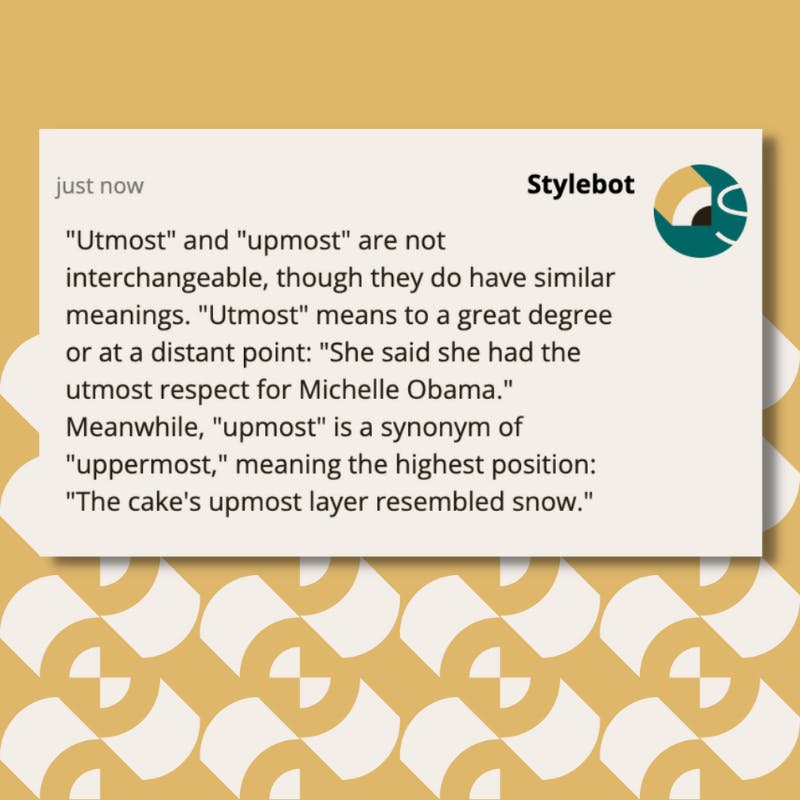If you want people to have the utmost respect for your language skills, don’t tell them something is of the upmost importance. When you’re talking about something you hold in high regard, it might seem natural to use a word with “up” in it. But “upmost” and “utmost” are not interchangeable.
“Utmost” originated as a synonym for “outermost,” and it’s still used to mean a distant point. It also means “of the greatest or highest degree, quantity, number, or amount” and is the word you’re looking for in phrases such as “utmost importance” and “utmost concern.” It can also be used as a noun, as in, “She’s doing her utmost to ensure the project is finished on time.”

So what about “upmost”? It’s synonymous with “uppermost,” referring to something that occupies the highest position.
Want to stop confusing the two words? Here’s our tip: Do your utmost to eliminate “upmost” from your vocabulary and just use “uppermost” instead.
💬 Need more tips?
Want to get writing tips like these on demand? Try Stylebot for free.
📝 About Stylebot
Stylebot helps media professionals save time without sacrificing quality by answering copy editing questions on Slack and Microsoft Teams. We’re on a mission to make editing faster, easier and more fun ✨Lean more about Stylebot or follow us on Twitter and Instagram.
